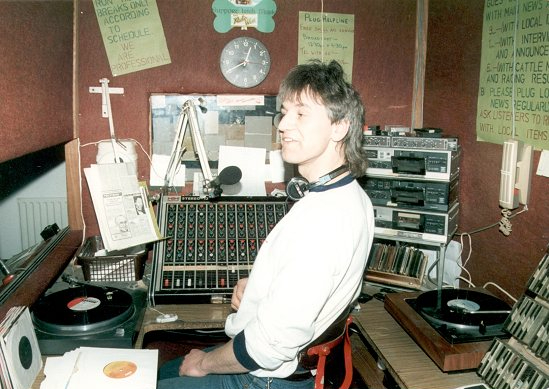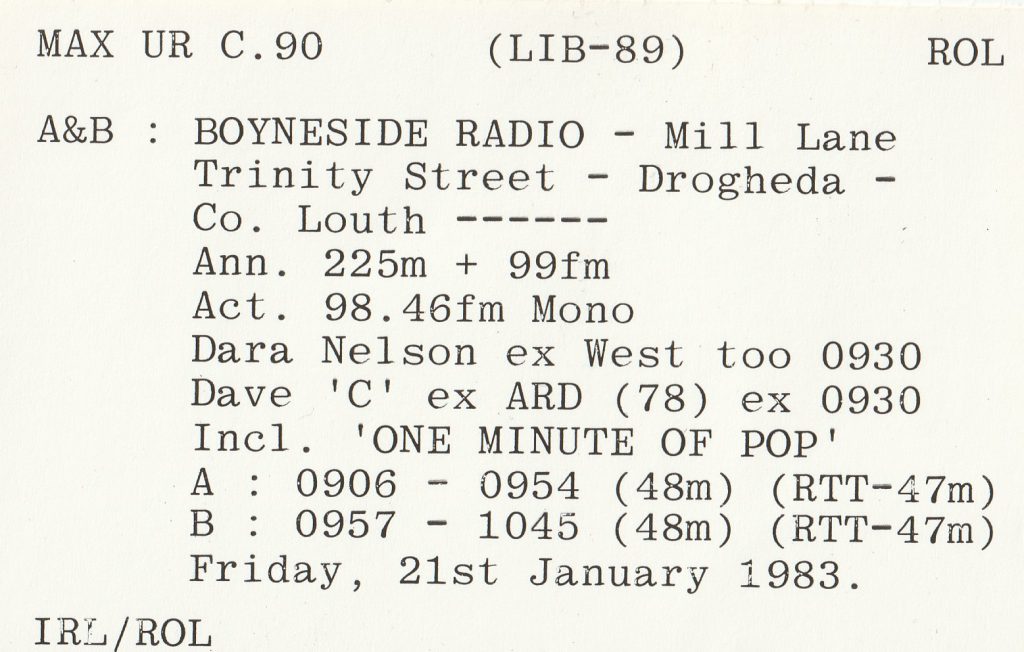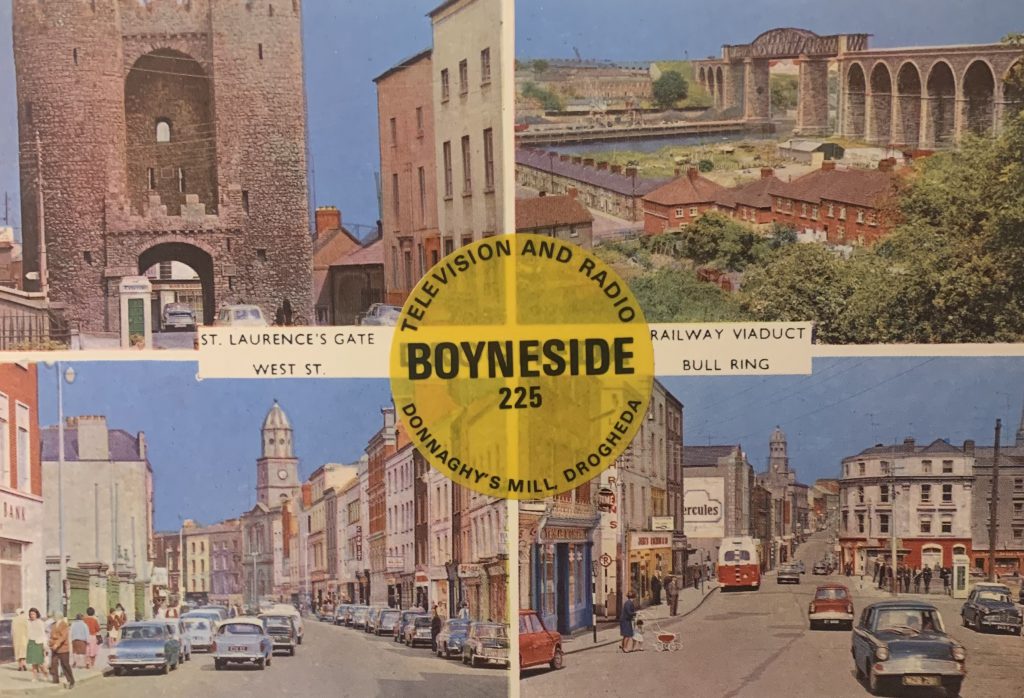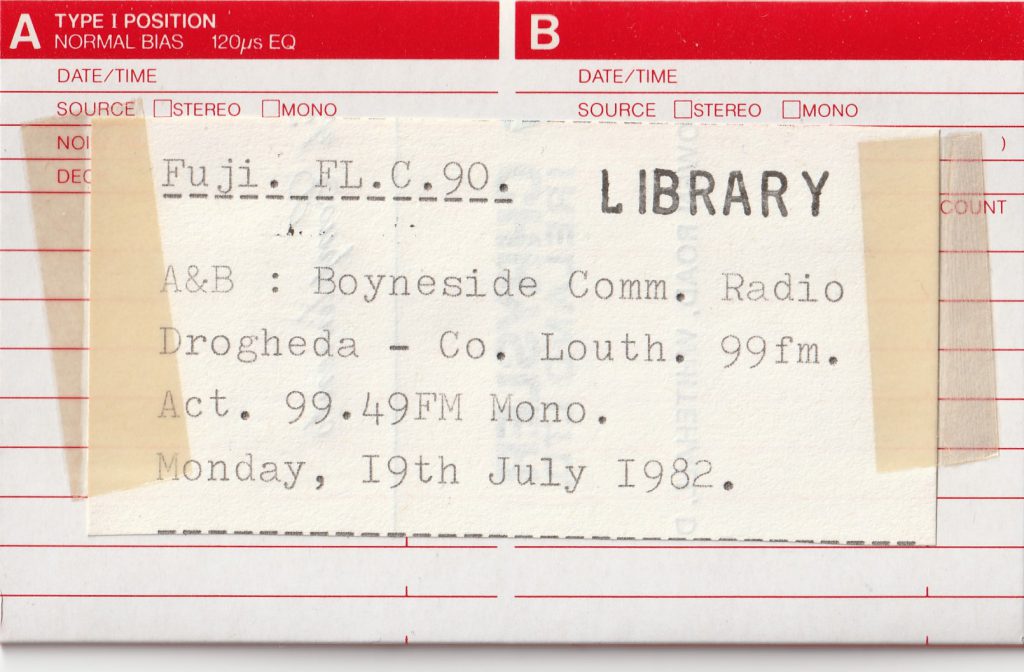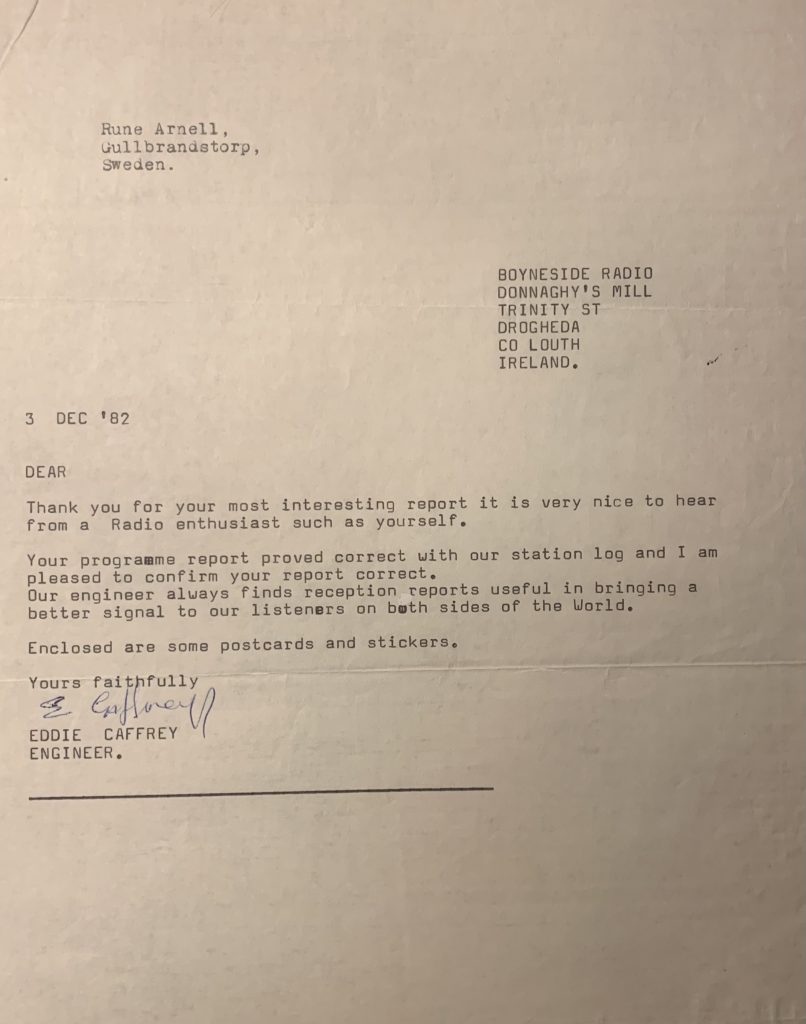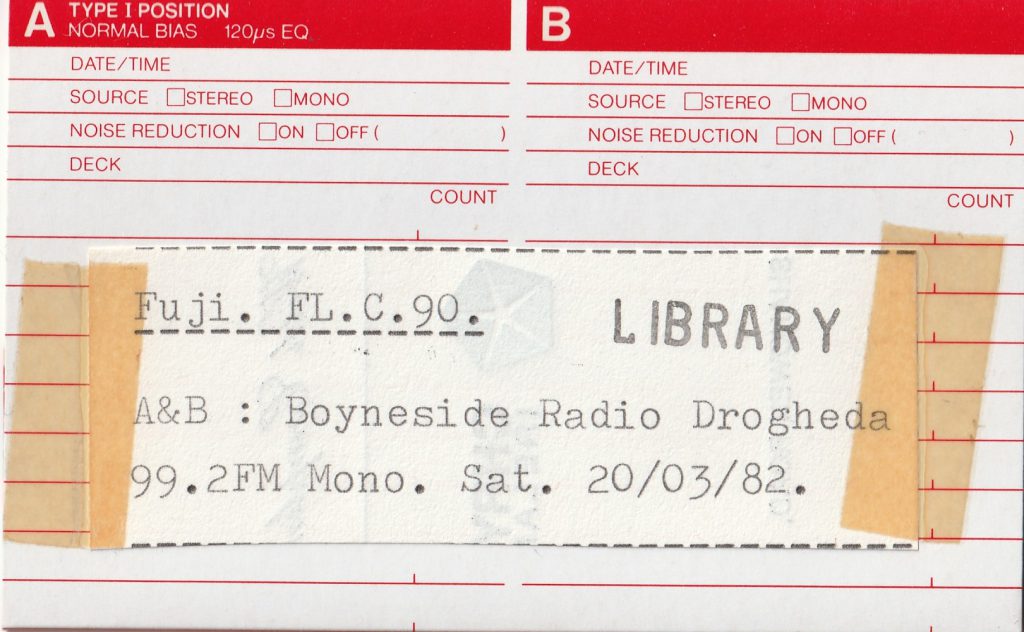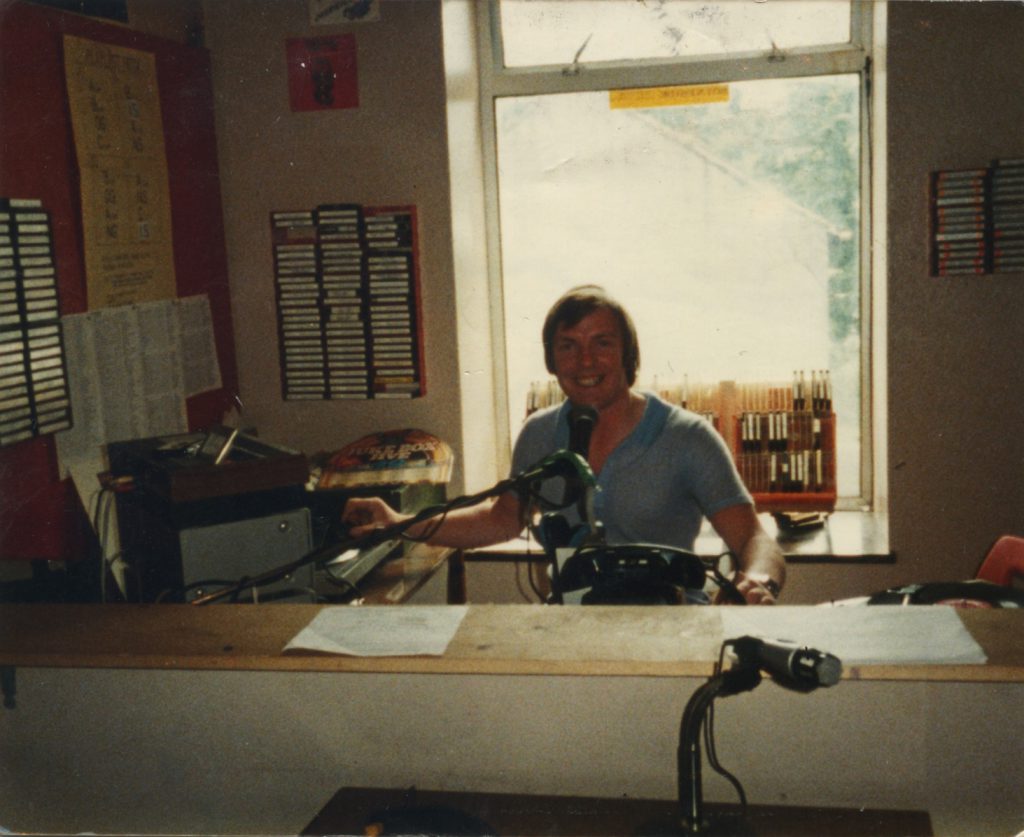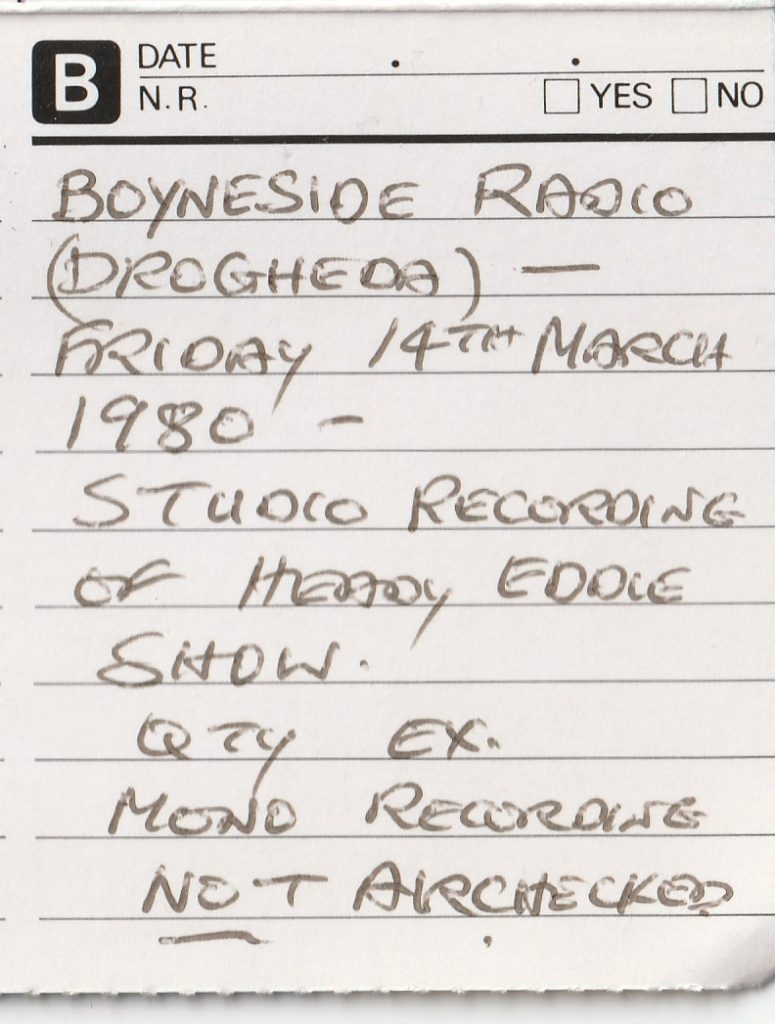Podcast: Play in new window | Download
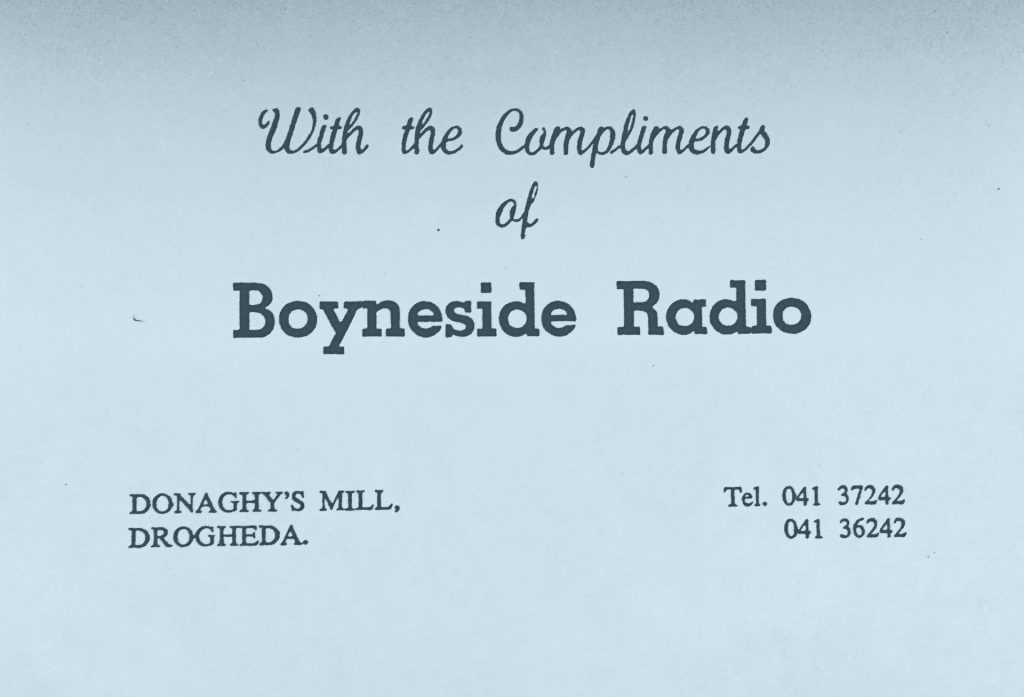
This is an airchecked recording of daytime and evening programming on Boyneside Radio from Drogheda on Good Friday, 3rd April 1983. It includes excerpts from the breakfast show with Dara Nelson, Dave C.’s Golden Oldies Show, sports news at 6.30pm, Country Convoy with Seán Neilon and Nightbeat with Neil O’Brien. The voices of Eddie Caffrey, Dave C., Dermot Finglas, Daire Nelson and Áine Ní Ghuidhir are heard on adverts. One spot for the Augustinian religious order stands out from the more familiar ads for local businesses! The selection from different times of the day gives a good flavour of the variety heard on Boyneside at the time.
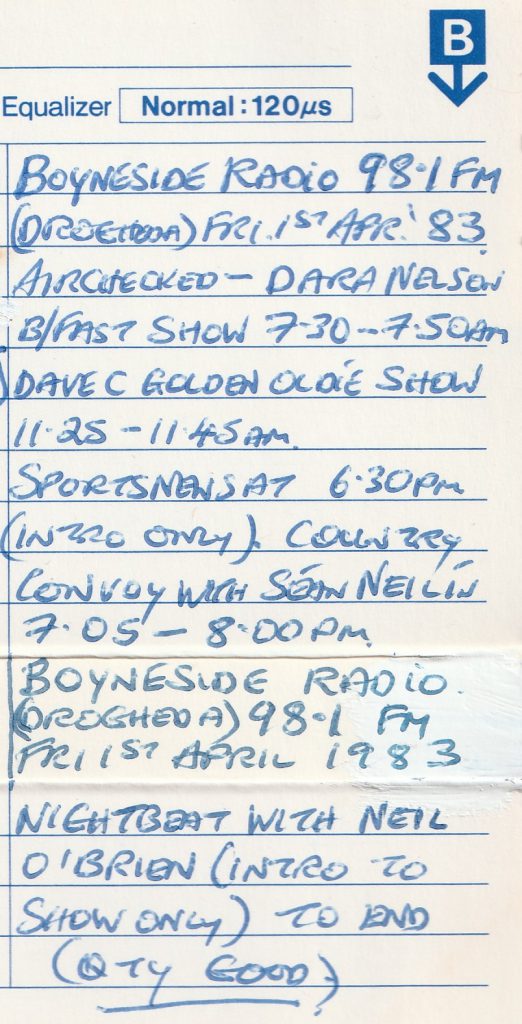
The recording was made from 98.1 FM in mono and is from the Anoraks Ireland Tapes Collection, donated to us by Paul Davidson. It was recorded originally by Kieran Murray. Further material from this collection can be found on Radiowaves and the Irish Pirate Radio Archive.

